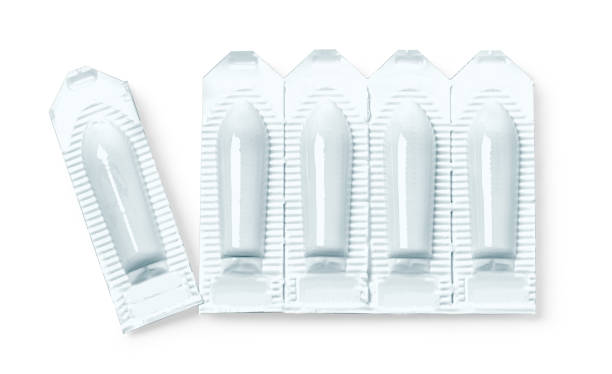How Can I Use Boric Acid to Treat Infection?

How Can I Use Boric Acid to Treat Infection?
Boric acid is a naturally occurring compound with antimicrobial properties. It has been used as a home cleaner and laundry stain remover for centuries. It has also been effective in treating certain types of infections, especially those related to the vagina.
Today, a lot of questions abound about boric acid use for the vagina. Even some healthcare professionals have prescribed boric acid suppositories along with other treatments. Have you been curious about the benefits of boric acid? This article provides insight into how to use boric acid for treating infections, including its benefits and risks.
What is Boric Acid?
Boric acid (H3BO3) is a white, powdery substance with antifungal, antiviral, and antibacterial properties. It is commonly used in pharmaceuticals, cosmetics, and as an insecticide. In the medical field, boric acid is often used to treat vaginal infections such as yeast infections and bacterial vaginosis due to its ability to restore the natural pH balance and inhibit the growth of harmful microorganisms.
How Does Boric Acid Work?
Boric acid provides an unconducive environment for the pathogens causing the infection. For vaginal infections, it helps in:
- Restoring pH Balance: Boric acid helps to normalize the acidic environment of the vagina, which is crucial in maintaining the health of the vaginal flora.
- Antimicrobial Action: It disrupts the cell walls of fungi, bacteria, and viruses, preventing their growth and replication.
What kind of infection does boric acid treat?
Boric acid suppositories are commonly used to treat yeast infections. Vaginal yeast infection is caused by overgrowth of a fungus known as candida. This causes itching, burning, thick, and white discharge like cottage cheese. Boric acid suppositories are capsules filled with boric acid powder that are inserted into the vagina.
Boric acid suppositories are often used to treat bacterial vaginosis (BV). Bacterial vaginosis is caused by an overgrowth of bacteria leading to an imbalance in the vagina. The common symptoms of BV are a fishy smell, thin gray discharge, and itching. Boric acid suppositories can restore the vagina's pH and reduce symptoms.
How to Use Boric Acid Suppositories
- Before using boric acid, it’s crucial to consult a healthcare professional to confirm the diagnosis and ensure it’s safe for you.
- Typically, boric acid suppositories are used once a day at bedtime for 7-14 days. However, your healthcare provider should prescribe the exact dosage and duration.
- Before insertion, wash your hands properly. Lie on your back or stand with one leg raised and gently insert it into the vagina. Remain lying down for a few minutes to ensure the suppository stays in place.
- You may use panty liners as the suppository may leak slightly. Avoid sexual intercourse during treatment as boric acid can be irritating to the partner.
Safety and Precautions
While boric acid is generally safe when used correctly, there are several precautions to consider:
- Do Not Ingest: Boric acid is toxic if swallowed. It is strictly for external use only.
- Pregnancy: Do not use boric acid suppositories if you are pregnant unless advised by a healthcare provider.
- Side Effects: Some women may experience vaginal irritation or a burning sensation. If these symptoms persist, discontinue use and consult your healthcare provider.
- Allergic Reactions: Though rare, some individuals may experience an allergic reaction to boric acid. Symptoms include rash, itching, and swelling.
Frequently Asked Questions (FAQs)
How quickly does boric acid work for yeast infections?
Many women experience relief within a few days of starting treatment, but it may take the full course (7-14 days) for symptoms to improve.
Can I use boric acid for recurrent infections?
Yes, boric acid is often used for recurrent vaginal infections. However, frequent infections should be discussed with a healthcare provider to rule out underlying conditions.
Are there any alternatives to boric acid for treating vaginal infections?
Yes. Other treatments include antifungal medications (like fluconazole) for yeast infections and antibiotics (like metronidazole) for bacterial vaginosis. Probiotics and lifestyle changes may also help in management and prevention.
Can I use boric acid if I am on my period?
It is generally safe to use boric acid suppositories during menstruation, but some women prefer to wait until their period is over for ease of use.
Where can I buy boric acid suppositories?
Boric acid suppositories are available over-the-counter at pharmacies and can be purchased online. Ensure you buy from reputable sources.
Conclusion
Boric acid is a potent and natural treatment for vaginal infections, particularly yeast infections and bacterial vaginosis. When used correctly under the guidance of a healthcare provider, it can offer significant relief and help restore vaginal health. Always follow the prescribed dosage and take necessary precautions to avoid adverse effects. If symptoms persist, seek medical advice promptly.
By understanding how to use boric acid effectively and safely, you can take proactive steps toward maintaining your vaginal health and preventing recurrent infections.
